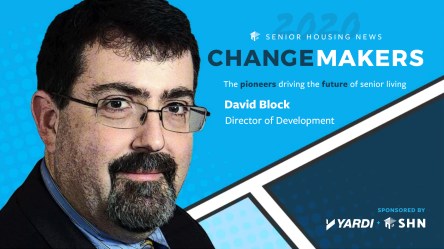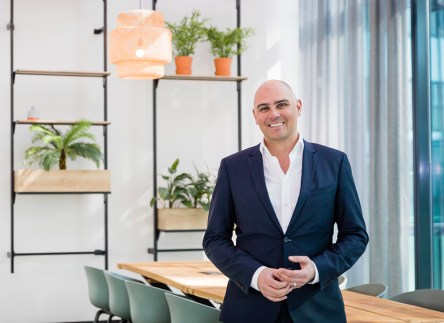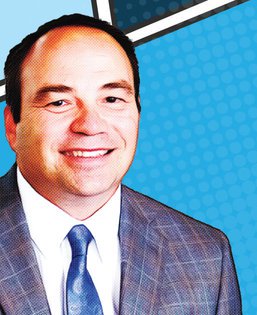Growth may be a good problem to have, but you still need a way scale efficiently and effectively. Especially when it comes to accounts payable. As the number of communities in your portfolio grows, so too does the number of vendors to manage and invoices to process. Based out of the Pacific Northwest, Cascadia Senior Living and Development creates and operates innovative independent, assisted living and memory care communities. They started in 2014 with one community, and their commitment to providing excellent care has since helped them expand to 13 communities across Washington and Oregon. For Cascadia’s AP team, things eventually hit a point where their original workflows weren’t sufficing. “Basically, some of the processes that we had in place when we had one community didn’t scale for when we had 13,” said Michael Shefter, CFO of Cascadia. “We had an employee here, our accounts payable manager, who would stuff envelopes for all the checks that we had to cut for our communities.” Cascadia receives roughly 1500 invoices a month, so the time it took to process them all was significant. Already a Yardi client, Cascadia turned to Yardi Bill Pay for the solution. Keeping check cutting in check Part of the Yardi Senior Living Suite, Bill Pay outsources the process of paying vendors to Yardi. The Bill Pay team takes a client’s invoices, routes them through the approval workflow and pays the vendor by ACH, credit card or check. In Cascadia’s case, they decided to have Yardi physically print and mail the checks. The process for getting started with Bill Pay was painless, since it integrates with Yardi Voyager Senior Housing and any already established workflows. Cascadia began with one test community in early spring. “We rolled Bill Pay out with a check...
Tulsa Real Estate Fund
Investment Opportunities for All
Did you know that about 90% of millionaires built their wealth through real estate? Between 1932-2012, however, the average American faced multiple barriers to entry for real estate investment. New laws limited participation in investments, placing a hurdle between small-time investors and wealth. Crowdfunding, legalized in 2012, is a relatively new opportunity for people with limited income to invest in large projects. It permits accredited and unaccredited investors to build wealth through real estate and other investments. The Tulsa Real Estate Fund (TREF) was the first African American owned and managed regulation A+, two-tier real estate investing crowdfund in American history. Its initial purpose was to help low-income families participate in real estate investments that build wealth and combat gentrification. Since then, it has expanded its services to accredited and unaccredited investors. Barriers to entry for low-income families and minorities TREF is a nod to the nation’s past when communities invested together to achieve success against all odds. In the early 1900s for example, the predominately black community of Tulsa, Oklahoma used small group investments to development the town. Conventional lenders would not serve black communities, yet new industries, businesses and families flourished thanks to collective investments. The Greenwood District of Tulsa became so successful that it was called Black Wall Street. Group investments helped the town overcome discriminatory lending practices, but the community would soon face a larger hurdle. In 1921, Tulsa experienced a wave of domestic terrorism later known as the Tulsa Race Riots and the Tulsa Massacre. Though the catalyst is still under dispute, the event resulted in the deaths of as many as 300 African Americans, 800 injuries, and 35 city blocks bombed and set ablaze by white mobs and the National Guard. The events destroyed Black Wall Street and left many families homeless and without a source of income. Tulsa was not the first or the last successful black town to be destroyed by a combination of economic sabotage and domestic terrorism. Following the Great Depression, low-income and minority investors would face new challenges. The Security and Exchange Commission took shape. It is credited for protecting investors from schemes that were rampant during economic recovery. Simultaneously, it hindered how lower-income families could participate in the recovery: investors were required to receive accreditation, the guidelines for which demanded a net worth in excess of $1,000,000. It would be 80 years before an organization like TREF brought large-scale investments back into the hands of the average American. Forming TREF From the end of the Great Depression to 2012, low-income families and minorities were limited in investment opportunities and success due to a combination of domestic terrorism, economic interference and new laws. In 2012, the Obama administration signed the Jumpstart Our Business Startups (JOBS) Act into law. The JOBS Act creates opportunities for people and organizations to participate in investments and publicly raise funds from accredited and unaccredited investors. This new era of crowdfunding lay the foundation for The Tulsa Real Estate Fund, where investments begin as low as $500 at $50 per share. The organization was named to honor the entrepreneurial spirit of Tulsa’s Black Wall Street. It is aimed to highlight the correlation between small investments, real estate and the will to succeed against the odds. TREF founder Ernestine Johnson explained, “The goal of the Tulsa Real Estate Fund, which I cofounded with my husband, is to spread a message of financial empowerment and financial literacy in underserved and working-class communities.” The women propelling TREF Around 2017, Johnson learned that the median net worth for black women in her age range was $500. “This did not sit right with me,” recalled the television actress. “I was standing on $1,000 shoes. I said to myself, ‘I have to use my art and my voice to financially empower low income, underserved and urban communities,’” said Johnson. Johnson recruited Johnetta Paye to form TREF. Paye is the owner...
Digital Transformation...
CRE and COVID-19
The state of commercial real estate has been significantly changed by the COVID-19 pandemic. The industry has seen a steep rise in the need for tech platforms to drive revenue and facilitate remote work to keep offices safe and productivity high. Spending on advanced technology According to CBRE research presented by Stuart Appley on a recent Realcomm webinar, 57% of companies were increasing spending on digital transformation prior to COVID. Moving forward, 70% of executives say digital transformation spending is likely to accelerate. A deeper dive into the numbers shows that increased spending is driven largely by business growth opportunities (51%) and increased competitive pressure (41%). The focus of the spending is primarily on modernizing customer touchpoints and enabling infrastructure, 54% and 45% respectively. In other words, operators are spending on tech that allows them to grow their business and to keep up with the competition, specifically by creating or implementing new systems to eliminate physical touchpoints. Health and wellness standards will need to be consistently monitored in order for offices to return to normal business. Appley, managing director for CBRE described some of the digital advances that companies are examining and implementing: Drones to perform building inspections Machine learning Robotic process automation Virtual reality training and virtual space planning Blockchain to digitize assets A poll in the Realcomm webinar, showed that 85% of attendees believe the rate of tech adoption will increase due to the effects of the pandemic on businesses. Innovative projects and IT strategy Executive decisions on IT should address several key metrics: increase asset value, reduce expenses, increase tenant retention and drive revenue. “If you build your IT strategy around these points, you will be successful,” said Brian Sutherland, industry principal at Yardi. Moving payments online is something that has...
Changemakers Series
David Block, Evergreen
The pandemic has impacted every segment of the housing industry, but it poses an even higher risk for the most vulnerable in our society. Safe, secure and stable housing has never been more essential. David Block is the director of development for the Evergreen Real Estate Group, which builds, acquires and manages affordable and market-rate multifamily communities across the Midwest. Their portfolio comprises a large number of independent senior living communities, and the company has excelled in adaptive reuse. That is, converting older buildings like hospitals into subsidized communities for those in need. Welcomed by local agencies and appreciated by residents, these unique projects have also caught the attention of Senior Housing News. They’ve given Block the title of Changemaker and interviewed him for his insights on innovative housing solutions as well as the company’s COVID-19 response. Keep reading for excerpts from the talk. Has the COVID-19 pandemic affected Evergreen’s senior housing business? Do you think that it could lead to any longer-term changes in senior living? It’s been all hands on deck for our entire team. We have a portfolio of about 10,000 units [including] total units that we own, units that we manage for others, and of that, I think a little more than half are seniors. Our property management side has been working very hard to make sure that the senior sites, in particular, are secure. We’re not limiting visitors yet because these are, by and large, independent living facilities. They’re apartment buildings. They’re not health care facilities like those that have been hardest hit. We’re certainly sending out information to our tenants. We’re making sure that our staff are trained in the hygiene and the protocols that are out there to try to slow the spread of this virus. We’re...
Lease Performance Now...
CRE and COVID-19
It’s hard to imagine entering August with the COVID-19 pandemic still causing mass disruption throughout the commercial real estate industry. While there are varying degrees of guidelines and protocols for reopening buildings, the general consensus is that a large percentage of tenants needed help to navigate these times. Whether it was in the form of rent concessions, deferrals or any other tactic to prevent going under, tenants are reaching out to property managers more than ever. As part of Yardi’s Innovator Sponsorship of the July CRETech virtual conference, Brian Sutherland, commercial industry principal, had a chance to host a discussion with Paul Gaines, managing director of asset management for Accesso Partners. Accesso, based out of Hallandale, Florida, manages a portfolio of over $3.3B in assets across 21 cities in 8 states. Managing Deferral Requests Gaines explained they initially had 150 tenants across the portfolio who requested rent relief. Accesso then requested three things: 1) Ask the tenant to look thoroughly at their insurance coverage for any pertinent information. 2) Ask the tenant to apply for government assistance. 3) Ask the tenant to send complete financial documentation to Accesso so they could work on a plan together. Gaines revealed that his company had been able to reach agreements with 35 tenants on lease amendments or deferrals, without granting any abatements. While it’s a difficult time for all, it is important to realize the difference between those who truly need assistance and those who simply aren’t able to use their office space but are continuing business operations successfully. Thanks to quick and concise decision making within the executive team at Accesso and consistent communication with tenants, Gaines said they have seen 96-97% timely collection across the portfolio since work from home orders were enacted. The senior...
Assisted Living Aid
COVID-19 Relief for Providers
Testing kits, sanitization materials and personal protective equipment are essential tools in the battle against COVID-19 for senior living providers. Unfortunately, these resources are ballooning budgets for organizations already operating on thin margins. So as talks of further coronavirus relief packages continue in Congress, a coalition of senior living associations are pushing for direct aid to help cover these costs and ensure resident safety. AHCA/NCAL, Argentum and LeadingAge have taken a clear position: Billions of dollars in relief have already been given to health care providers, including skilled nursing facilities, but private-pay assisted living has so far seen no financial support. Their call for aid is being echoed by lawmakers too. Rep. Kay Granger recently wrote an editorial on The Hill requesting the U.S. Department of Health and Human Services (HHS) to provide help and resources to senior living facilities. “The administration did a good job of prioritizing nursing homes early on in the pandemic so that they could get the personal protective equipment (PPE) supplies they needed. But many of our elderly don’t live in nursing homes; they live in senior living facilities, like Sagora Senior Living in my congressional district,” Granger writes. “We need to focus on getting resources to help these vulnerable Americans. And we need to do it now before it’s too late.” To facilitate a potential distribution, the senior living group built an online portal where providers could enter their information. The data is now being packaged for the HHS, which has been allocated COVID-19 relief funding from the CARES Act passed in March. The associations want to stress that there is no guarantee the funds will be received, but the effort does bring the private-pay industry one step closer to seeing it happen. And although the current deadline...
Data Drives Success
Yardi EU Perspective
Real estate asset management firms are facing extraordinary challenges in the aftermath of the COVID-19 outbreak. Some may emerge from the crisis relatively unscathed. Others might not be so fortunate. Social distancing requirements and work-from-home strategies, prompted by COVID-19, have rapidly amplified the importance of operational and financial data, its accessibility and team connectivity. What matters almost more than the data itself, however, is the means of obtaining it efficiently and using it effectively to benefit clients, investors and other stakeholders. That’s not easily done without the right technology. In the world of real estate asset management, data comprises information that reveals a portfolio’s health, such as revenues, debt, risk, occupancy and sales, along with property-level operations such as energy consumption and accounts receivable. Two distinct groups need this data: operations groups tasked with effective management of the portfolio, property and tenants; and those who focus primarily on investors along with the organisation’s tactical and strategic issues. Some systems compile data from multiple disparate systems, making usable data a moving target. This approach – which prevailed in most property management industry vertical markets until the last couple of decades — is complicated, cumbersome and prone to error. For asset and operations managers to remain nimble, act proactively, anticipate and react decisively, they need a way to stabilise and gain instant access to it. That’s why connectivity is the key value proposition in asset management and the reason that sophisticated yet user-friendly asset management software applications that collect, process and apply such data across the asset management lifecycle are increasingly relevant. All user groups benefit when the data their business depends on is readily available. Fortunately for them, today’s asset management technology platforms assimilate all asset management information at the property and portfolio levels and...
5G Technology
Impact on CRE
What do we know about 5G connectivity at this stage in its development? First, we know it’s nowhere near the capacity it will have in the coming years. Second, we know that it will provide an incredible speed increase over 4G (potentially 100x faster downloads). Third, we can safely presume it will have a significant impact on commercial real estate. In a recent session at the 2020 Virtual BOMA Conference, Yardi solutions consultant David Franklin explained how 5G is already beginning to transform the industry and reshape communication standards. A world of new possibilities “The change to 5G will be as significant as the change from analog to digital,” Franklin said. While timing is still unpredictable, 5G will become ubiquitous. Existing cell towers may not have to be replaced and, while there will be millions of new towers that pop up, 5G connectivity will be available everywhere. This is due to the fact connection points will become easily installed anywhere from light poles to bus stops. The world of 5G connectivity will enable new apps and facilitate robotics and other AI and IoT enhancements. While 4G brought the capacity to video conference and download and upload at new speeds, 5G is going to top that by “connecting massive amounts of devices with very low latency,” Franklin explained. The progress made by 5G will empower a huge number of low-cost devices with low energy consumption related to IoT. The Internet of Things is already comprised of an extensive list of interconnected devices, but with 5G becoming more prevalent, this will enable more data collection, deeper data analysis, faster communication and, of course, new devices and tasks. Real estate operation already relies on IoT-related components such as thermostats, security cameras, lighting controls and energy conservation systems....
Learning Resources
Job Aids for Yardi EHR & eMAR
For EHR systems, workplace training is essential. The software helps nurses deliver quality care, so it’s important that they become proficient in electronic charting and medication order management. Once they’ve learned the ropes, they get to spend more time with residents and less on technology. But when things change rapidly, as the case has been with COVID-19, it can be difficult to conduct enough hands-on training to bring staff up to speed, so it’s smart to provide extra learning resources to ensure they have the information they need, right when they need it. As a recent example, one senior living client of ours had the idea to create handouts for agency nurses who are supporting staff during the pandemic. Some of these new nurses were unfamiliar with Yardi EHR, so they were resorting to charting on paper. To get the nurses on track, the client created a two-page handout, featuring screenshots and instructions, that outlines what to do at the start, during and after a shift. It effectively guides the nurses through the essentials of a shift in Yardi EHR, and it even offers some troubleshooting in case they get stuck. The handouts have proven successful as a support tool across their communities. In that same spirit, we’ve created over a dozen job aids for Yardi EHR and Yardi eMAR to facilitate learning and help your staff be more productive. Each document covers one task (like adding new orders or updating a physician’s contact information) in clear, easy-to-follow language that caregivers can reference if they’re new to the process or just not quite sure about the steps. Here’s a quick rundown of what our new Yardi EHR and Yardi eMAR job aids explain: Adding, verifying and linking orders (both medical and non-medical) Navigating a...
5 Tips to Prevent
Property Manager Burnout
Property management staff members are burnt out. We hear your concerns: addressing financial issues, public safety and frustrated residents have added additional stresses to an already demanding job. As property management leadership, you play an essential role in preventing burnout for yourself and others. Leasing agents are discouraged and need your support Social distancing is dragging on and very, very few people are happy about it. Property management must decide how to reopen multifamily amenities and enforce social distancing policies—decisions that are bound to upset people. Additionally, while many employers are grasping for business as normal, others are closed or operating on a skeleton crew. This financial uncertainty is challenging for residents and the staff that tries to assist them. Your staff members need your support and insights. Perhaps once a week at the end of the day, host a meeting that allows staff to share the challenges that they’re facing. This is an especially important time for you to listen as listening reduces the frustration of conflict. To help you get started, we’ve identified a few common pain points that might arise and how to address them: Help staff communicate a fair, consistent message for residents Agents are receiving lots of calls and emails. Many are from residents who want refunds for amenities and services that they haven’t been able to use as expected. Encourage staff to listen and mirror residents’ concerns. Then ensure your staff knows how to address residents’ concerns and offer a fair response. If you will be offering concessions, create consistent guidelines that staff can use. If you are not offering concessions, help staff craft the verbiage needed to explain why. When agents understand your expectations and know what to say, you can reduce the frustration of communicating with...
Innovating in Industrial
Delin Property goes out-of-the-box
The traditional image of a warehouse is that of a windowless box with little visual appeal, inside or out. That perception is giving way to new designs that use technology to integrate efficiency with safety and opportunities for constructive workforce interaction. Delin Property, the leading pan-European real estate investment developer in the logistics market, is on the leading edge of that transformation. Delin’s status as both a logistics real estate developer, asset manager and investor provided a vantage point for envisioning a new type of storage facility. “We’ve always tried to be on the forefront of design and technology, and to use that motivation to create a better experience for owners, tenants and investors,” says Bart De Sitter, development director for Delin Property’s operations in the Netherlands. Elevating the human element Delin Property began its redesign initiative by recognising that labour costs are a warehouse’s largest operational expense. That made improving the experience for both blue- and white-collar workers the company’s top priority. “A grey box with no windows isn’t sufficient today. You have to create a pleasant workplace to attract and retain the 1,000 to 1,500 workers who staff a warehouse, many of them millennials who have higher expectations of workplace amenities than previous generations,” says Jay Lelie, asset and leasing manager in the Netherlands. A design along these lines incorporates features such as windows, green spaces and terraces for breaks and meals. “Windows really make a difference when you’re in there for eight hours – not just to let natural light inside but to let workers see outside. Our clients tell us this feature really helps reduce absenteeism, illness and turnover,” according to Lelie. Along with creating an aesthetically desirable space, Delin Property’s new approach to warehouse design sought to end the sector’s historical workplace separation of white collar and blue-collar workers. “As interactions between managers and their workers become more complex in the e-commerce environment, working closely together onsite becomes more important. We wanted to create an environment that puts a premium on natural interaction and ends separate entrances and canteens and other arbitrary physical or mental barriers,” De Sitter says – although, of course, this scenario can’t be fully realised as long as COVID-19 remains untamed. Delin Property also put a premium on safety, plotting car and delivery truck routes well away from pedestrian traffic. Other challenges in the redesign included maximising parking spaces in tightly constricted urban locations. Using tech to strengthen client bonds Back when Delin Property was solely a property investor, it outsourced most of its direct contact with clients. “That was a logical choice at the time, but it ended up making us too remote from tenants and created too many steps between us and them,’ De Sitter said. “We wanted to manage the communication stream in a way that lets us focus on our relationship with clients rather than on administrative tasks and compiling reports.” Toward that end, the company has adopted advanced real estate management software solutions from Yardi that enable execution of multiple business operations from a single connected platform and promote staff efficiency and client service. Delin Property’s invoice processing, for example, will be paperless for tenants and driven by automated workflows all the way to vendor payment. Similarly, automated project management will help keep the company’s construction projects on time and on budget by providing real-time views of data across multiple capital projects. Meanwhile, tenants will have the convenience of making payments, communicating with Delin Property, accessing documents and submitting maintenance requests online or with a remote device. Other solutions will automate preventive maintenance and other elements of facility management while housing records for equipment and maintenance in one database. A vision rooted in simple changes All of these design and technology elements combine, according to De Sitter and Lelie, to create a future vision that encompasses “a high-end office with a facility behind it that...
Changemakers Series
Arun Paul, Priya Living
Doing things differently is part of what separates Changemakers from the pack. At Priya Living, Founder Arun Paul fully lives up to that expectation. He’s built Indian-inspired independent living communities that bring together not just older adults but people of all ages, races and religion. “When the young people would come in, we started hearing those comments like, ‘This place, we love it. Could we live here if we wanted to?’ We said, ‘We have vacant units, and we need to fill them. Yes, sure. Why not?’” said Paul. Priya Living now has three communities in California with a fourth on the way. They’ve instituted an a la carte model for services, where residents can use their smartphones to request food, care, transportation and other necessities. This willingness to try new approaches has also helped them adapt safely to the pandemic. They were taking steps in the first week of March to prevent the spread of infection, and so far no one in their communities has contracted the virus. In this excerpt from his Changemakers interview with Senior Housing News, Paul describes how COVID-19 affected their business and how they’ve responded to keep residents healthy and happy. How have you had to change operations due to Covid-19? We put a pause on programs and activities and enhanced disinfecting, cleaning and restricted visitation. We did that starting March 6, and then March 16, the Bay Area implemented a region-wide shelter in place. We’ve been fortunate. Knock on wood, we haven’t been impacted in terms of any cases in communities. Do you think Covid-19 will lead to lasting changes in how Priya operates? After that initial phase, we started to look at how we could start to bring our programming back, but use digital distribution for...
Apartment Onsite Teams Day
Celebrating Essential Workers
We’re excited to participate in the first Apartment Onsite Teams Day on August 12, 2020. The day has been designated by the National Apartment Association at the request of industry leaders to recognize onsite property teams throughout the country for their work to keep people safely housed during the COVID-19 crisis. Celebrate onsite workers Apartment Onsite Teams Day recognizes the people who have helped guide apartment communities throughout the U.S. through this unprecedented and uniquely challenging event. “With the advent of the coronavirus pandemic, our onsite management teams became our first responders. On this special day, we want to take the opportunity to express our gratitude for your leadership, your sacrifice and your care of our residents, our teammates and our clients,” said Mike Holmes, president of Easlan Management and NAA chairman. “The fight must continue, but we want to set aside a day to let you know how much you are appreciated. We all stand with you.” Nominate your heroes NAA has compiled an Apartment Onsite Teams Day toolkit to help property management companies thank their teams on this day in a variety of ways, from social media posts using the #APTeamsDay hashtag to safe, socially distant parties. Here at Yardi, we’re amplifying the celebration by inviting everyone to nominate onsite team members that are making a difference. It’s easy to participate. Simply grab a screenshot of the graphic below and fill it out. Or just retype it in your own words. Then post it on Facebook, Twitter, Instagram and/or LinkedIn. You must use the hashtag #APTeamsDay and tag Yardi to enter. Five winners will be selected at random on Friday, August 14. Winning posts will receive two $25 gift cards. One will be sent to the post creator, and the other will be sent to the person or team they nominated. It’s a nice way to do a little something extra for those supporting the many renters spending more time at home this year. “The apartment industry’s onsite team members have been on the frontlines throughout the COVID-19 pandemic, committing themselves to performing the vital work necessary to keep the community together during these trying times,” said Esther Bonardi, vice president of marketing at Yardi. “We invite you to join us in promoting the amazing work of our onsite teams.” We encourage you to get creative when showing appreciation for the people in your communities who have gone above and beyond. Add photos or videos and encourage your residents to participate too. We’ll be resharing some posts starting now through the end of the contest. Stay tuned It is our hope that Apartment Onsite Teams Day continues in the years ahead to applaud the ongoing commitment of onsite teams who work hard to keep residents happy and properties running smoothly. Don’t forget to give a shoutout to your favorite #APTeamsDay heroes for a chance to win! We look forward to highlighting your submissions on our social platforms throughout the week. See complete contest...
Safe Workplaces
Tech to help during COVID-19
We are nearly four months into the COVID-19 pandemic and businesses have had to adjust their daily operations to reopen for staff and guests. Every aspect of sanitation, proper distancing, touchpoints and other routine business functions are now altered to improve the safety and peace of mind of workers returning to the office. Coworking industry case studies On a recent Realcomm webinar, Yardi vice president of coworking, Dale Hersowitz, said that some aspects of technology already being implemented prior to the pandemic are now even more useful to help maintain productivity and safety. For example, in the coworking industry, fully transactional websites and apps for meeting room bookings, desk reservations and virtual space tours help facilitate a completely distanced and safe experience. Staples, whose brand is most associated with office supplies, started a coworking brand in 2019 called Staples Studio. They repositioned part of their stores into shared workspaces and on their website they list everything from meeting room space to private offices, making it quick and easy for a prospect to become a member and complete transactions. This shift to a mobile experience has begun to replace the in-person meeting with a front desk associate or community manager and it now grows to more prominence during COVID. “One of the keys is to use apps that will not only show you the product but the availability of the product,” Hersowitz said. In coworking, member retention is always a driving factor with a high turnover rate month-to-month. One of the main ways to increase retention while members are still largely not entering your space is to use apps that allow for as much community interaction as possible. Launch Workplaces, a Maryland-based coworking space with six locations, is using a member portal to drive community,...
Tech Knight
Larnoe Dungca, Yardi Oxnard
When you think of a knight, do you imagine him perched atop an ergonomic office chair? Does he don a headset, wield a mouse and fry fish dinners for those in need? If not, you’ve got a lot to learn about modern knights. Larnoe Dungca is a knight who embodies versatility, strength and compassion in unexpected ways. Starting a career at Yardi Dungca’s career with Yardi humbly began 13 years ago. After his previous company closed, he attended a job fair in Ventura and submitted his resume for a web developer position. Fast-forward and Dungca is now a RentCafe technical analyst. He assists RentCafe account managers in CPG Practice Group SB5 as well as other teams. Basically, he helps those who help others. “I really enjoy the satisfaction I get when issues are resolved,” says Dungca. “I love to imagine the smiling faces of RentCafe account managers when they say ‘thank you so much!’” Through his work, account managers receive the troubleshooting and guidance needed to solve the toughest software problems that clients face. A knight in a techie’s clothing Dungca is a bit of a hero to our account managers and the clients that they serve. He’s also a hero to his local community—he’s a knight, actually. For a decade, Dungca has volunteered with the Knights of Columbus Council 9969 Holy Cross Catholic Church in Moorpark. The group consists of about 150 men who host regular fundraising and outreach events for the community. One of his most memorable events was the Special Olympics Softball Tournament. “This was my favorite event,” says Dungca. “We made sandwiches for all players, umpires and staff that day at the park. It was great to see all of their cheer while they enjoyed the sport that they loved.”...
Electronic Invoicing
Benefits for real estate
Consider how much of your everyday business can be done without paperwork. If you want to fly, for example, you can do everything from booking your seat to gaining clearance to board the aircraft using just your cell phone. In contrast, many national and multinational real estate companies still generate, circulate and approve invoices using paper and manual routing. This highly inefficient process is costly, time-consuming and contrary to prevailing environmental sensibilities. A paper invoice can cost as much as € 4 to generate and route by air and ground transport. The cost of processing it can set the recipient back anywhere from € 15 to € 30 because he or she often has to rekey the information into his or her own database, then route it to multiple approvers. There can be dozens of touchpoints, each one of which consumes resources and presents opportunities for error. And that’s just one document. Multiply this sequence by the hundreds or thousands of vendors and partners some real estate firms deal with. This approach to invoice processing doesn’t just seem outdated with the potential to drag a business down – it is. Payables made easy Real estate companies’ profit margins might remain slender through the COVID-19 era. Besides that, tenants, investors, communities and regulators are imposing increasingly stringent environmental performance standards for businesses. These developments might inspire real estate companies in Europe to consider replacing the manual steps – and paper – in the accounts payable process with advanced software applications that scan invoices into electronic files, route them to approvers and pay suppliers with electronic funds transfer. This approach can sharply reduce costs as well as the material and energy required to create and move paper invoices to their various destinations. In fact, savings of...
Stable Investment
Future Affordable Housing
Through the best and the worst economic times, affordable housing has emerged as a stable sector. The demand for affordable housing continues to rise while creative private partnerships deliver fresh capital to fill the pipelines. With those conditions aligned, affordable housing is an investment that can weather turbulent times. Enduring investments Multihousing News reports a continuing upward trajectory for affordable housing demand. The current pipeline is insufficient to fill the current need, and if recessionary conditions prevail, the demand for affordable housing will continue to drastically outpace supply. While demand may pique investors’ interest, alone it is not enough. Affordable housing may prove to be more beneficial investment than other multifamily assets due to Section 8 vouchers. The rental housing assistance program creates a barrier of protection around privately-owned affordable properties. During tough economic times, Section 8 vouchers limit rent default rates in comparison to market rate housing. The benefit of investing in affordable housing extends beyond ongoing demand and security against defaults. Affordable housing leaders are positioning themselves for longevity and stability. Creative partnerships Public-private partnerships are becoming more prevalent, offering creative solutions for funding, development and property management. Individual firms as well as municipalities have come to rely on public-private partnerships during the ebb and flow of economic trends. Private firms are respected for their ability to complete projects while balancing quality and efficiency. Most commonly, private general contractors will use their connections to development and construction firms to complete projects for local governments. There are, however, exceptions to this dynamic. Yardi client Conifer Realty forged an investment partnership with Belveron Partners that allows Conifer to develop, build, own and manage properties under one roof. Conifer’s investment extends beyond a single project or portfolio to a company-level partnership that is a game-changer...
Changemakers Series
Richard Hutchinson interview
Leaders in senior living know that you need to take steps to stay ahead of change, even when things might seem normal in the moment. The earlier you act, the better off you’ll be. That idea is a core practice for Richard Hutchinson, CEO of Discovery Senior Living. Throughout his decades’ long career, he’s taken innovative approaches to sales and data that have produced measurable results. And when the coronavirus first began making headlines in January, he started procuring as much PPE as he could for his communities, well before local health authorities were raising alarms. For these reasons and more, Hutchinson was recently recognized as a Changemaker by Senior Housing News. The interview series, sponsored by Yardi, highlights leaders across the industry who are helping to shape the future of senior living. In the excerpts below from his interview, Hutchinson shares his take on how the senior living industry faces change and what it means to be innovative. He also talks about Discovery’s proactive measures to keep residents and staff safe from COVID-19. You’ve mentioned that the industry is set in its ways, and also that the consumer is changing rapidly. Do you think the industry is changing fast enough? No, I don’t think so. I don’t know that many industries are changing fast enough, and it’s the pace and the tempo of consumer behavior and the way the consumers not only want to purchase things incrementally, but generational changes and technology changes, that make it difficult to keep pace. The fundamentals of our industry have been great, so [we have] the good-bad equation. The good news when you have such a great supply-demand equation is that you’ll end up with people who can replicate other people’s product and services and do quite...
Simplified Claims
Claims Manager
Does the thought of Medicaid billing illicit groans from your staff? That’s understandable. Manual billing is time consuming, frustrating, and often riddled with errors. Fortunately, you can boost staff morale and productivity with automated billing for Medicaid. Claim submission woes can lead to high turnover Medicaid provides consistent and vital funding for senior care. But the variables in filing processes and reimbursement can cause headaches for staff. Complicated filing practices can result in costly errors, wasted time, and delays in reimbursement. Those frustrations are just the beginning of more troubling issues. As employee frustrations add up, turn over increases. High Speed Training of West Yorkshire reports on the top five reasons for high company turnover. A lack of innovation and overworked employees are two factors that drive employees out the door. When companies fail to adapt innovative practices and technologies to support their staff, the staff suffers. Staff members are unnecessarily burdened with inefficient, redundant, unfulfilling work and stress. As a result, turnover rates soar, and organizations fail to reach their potential. Simplifying Medicaid claim submissions Claim submissions are a pain point that developers with Yardi Senior Living have heard about for years. A game-changing solution is now available. Yardi Claims Manager, the newest update to our Yardi Voyager Senior Housing platform, streamlines and simplifies the claims submission process. With Claims Manager, you can: Get Organized Manage all Medicaid claims in a single, secure database. There is no need to shuffle between multiple software programs or websites. Improve efficiency Electronic submissions eliminates the need to sort, scan, and house files. All documentation is securely stored in Yardi. It’s easy to create, submit, store, and reconcile files. Improve accuracy State-specific billing templates make it easy to fill out claims with the information needed in your unique...
Live Yes!
Yardi + Arthritis Foundation
When you live in chronic pain, saying “yes” to events and activities is a difficult choice. For people living with arthritis, it can be a constant struggle to stay fit, social, and optimistic when discomfort impacts your every move. Fortunately, there is the Arthritis Foundation. The Atlanta-based nonprofit helps people living with one of 100 arthritis conditions find the relief and hope needed to Live Yes. Arthritis Foundation + Yardi The Arthritis Foundation serves on two levels. Primarily, the organization pursues cures and enhanced treatments for the disease. Additionally, it provides a network of information and resources to support the 50 million adults and 300,000 children living with arthritis. Clients can access in-person and online tools that are aimed to empower, uplift, and promote a sense of community. Marilyn Hansen, software development engineer III, development at Yardi has been involved with the Arthritis Foundation for about 20 years. She got involved when a loved one was diagnosed with the illness at a relatively young age. “I have an adult daughter who has had to deal with rheumatoid arthritis for over 30 years. She’s had multiple surgeries to help relieve the pain. There have been tough times, but resources through the Arthritis Foundation have helped her live a fulfilling life. She got married this past December and my husband and I really like our new son-in-law!” shared Hansen. Hansen advocates for the cause in Sacramento and participates in the annual Taste of the Town and Arthritis Walk in Santa Barbara. During a typical year, Hansen organizes a team of Yardi team members to complete the walk and raise funds. She also helps with food prep for the events. But this year has been year of unprecedented change, forcing Hansen and the Arthritis Foundation to get...




















